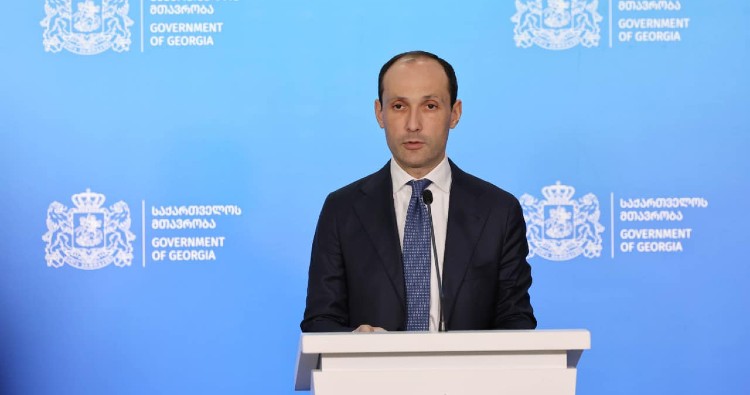Economy Minister: Black Sea submarine electricity cable to change Georgia’s role in region, international arena

Davitashvili noted that Georgia had been an initiator of the project, which represented a "consistent continuation" of the country's policy of close cooperation and connectivity with the EU on its path to European integration, and added these steps would “ultimately” lead to Georgia’s integration into the EU energy market. Photo: Economy Ministry/Facebook
The Black Sea submarine electricity cable is a strategic project of the 21st century, which will change Georgia’s role in the Black Sea region and the international area and will make the country’s energy sector “even more attractive” for investors, Georgian Economy Minister Levan Davitashvili told the media on Saturday.
Davitashvili noted Georgia was a “stable partner” for the Western countries and had important projects, including the Baku-Tbilisi-Ceyhan oil pipeline, linking Azerbaijan, Georgia and Türkiye across the South Caucasus.
Exporting generated products directly to the high-value market with the highest purchasing power will “accordingly” increase the attractiveness of Georgia’s energy sector, the Minister said, adding the Government launched a new scheme for supporting renewable energies this year.
Georgia’s role is “important” for the European Union not only as a beneficiary but also as a partner country and it can be “useful” to the Union “in many ways”, including being an alternative, “reliable” connecting country of the EU to the countries of Central Asia and the South Caucasus in the fields of energy, information technologies, cargo circulation, etc., the Economy Minister said.
Davitashvili noted that Georgia had been an initiator of the project, which represented a "consistent continuation" of the country's policy of close cooperation and connectivity with the EU on its path to European integration, and added these steps would “ultimately” lead to Georgia’s integration into the EU energy market.
- EU announces €2.3 bln in investments for project allowing green energy exports to Europe via Georgia
The country has already spent “several millions” in the feasibility study of the project and will move to the implementation stage next year, and as per the preliminary estimate, the project cost may be around $3 billion, Davitashvili said, highlighting the importance of the involvement of the governments of Georgia, Azerbaijan, Romania and Hungary in the project to ensure the successful implementation of the project.
 Tweet
Tweet  Share
Share